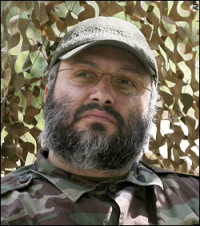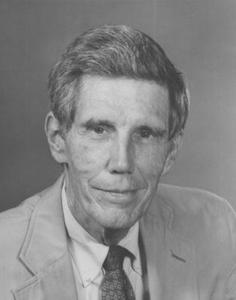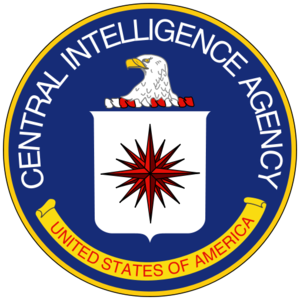
Note: Our accounts contain the personal recollections and opinions of the individual interviewed. The views expressed should not be considered official statements of the U.S. government or the Association for Diplomatic Studies and Training. ADST conducts oral history interviews with retired U.S. diplomats, and uses their accounts to form narratives around specific events or concepts, in order to further the study of American diplomatic history and provide the historical perspective of those directly involved.
Imad Mughniyah, Chief of Hezbollah International Operations, was one of the FBI's Most Wanted Terrorists and was sought by authorities in 42 other countries. Over a 30-year span, Mughniyah repeatedly eluded capture, masterminding a slew of major terrorist attacks, such as the bombing of the U.S. Embassy and Marine Barracks in Beirut in 1983, the hijacking of TWA Flight 847 in 1985, the suicide bombing of the Israeli embassy in Buenos Aires in 1992, and the Khobar Towers bombing in Saudi Arabia in 1996. As revealed in a January 30, 2015 Washington Post article, CIA officials worked with Israel's Mossad to design and test a bomb which was placed in a spare tire of an SUV parked in Damascus on February 12, 2008, near Mughniyah's usual route. CIA spotters tracked his movements but it was Mossad which detonated the explosive, killing him instantly. Until recently, CIA cooperation in the controversial joint effort had been unbeknownst to the public, though its involvement was strongly suspected. This account was compiled from an interview by ADST with Ambassador Robert Oakley in 1992, the State Department's Coordinator for Counterterrorism from 1984-1986. Read the entire account on ADST.org OAKLEY: We could not deal with generalities; speculation would not do, even if based on fragmentary information. Our case had to be solid and well documented because I understood that the Europeans had their own interests which could only be set aside by a complete and well marshaled set of facts. Once we had obtained hard information, then I thought we could get the results we desired.
This account was compiled from an interview by ADST with Ambassador Robert Oakley in 1992, the State Department's Coordinator for Counterterrorism from 1984-1986. Read the entire account on ADST.org OAKLEY: We could not deal with generalities; speculation would not do, even if based on fragmentary information. Our case had to be solid and well documented because I understood that the Europeans had their own interests which could only be set aside by a complete and well marshaled set of facts. Once we had obtained hard information, then I thought we could get the results we desired.
The Europeans had a more legalistic approach to counter-terrorism than we had; furthermore, they had important commercial relations with the countries that were suspected of providing support to terrorism. They also tend to consider themselves as more seasoned with cooler heads, unlike the U.S., which was viewed as that hot-headed and impetuous cowboy going after the "bad" guys.
They were more skeptical about the cause and effect of terrorism than we were and also viewed our information about the extent of terrorism with some suspicion. Finally, the Europeans were highly skeptical about the effectiveness of sanctions, if we reached that stage. So the gap between us and the Europeans on counter-terrorism was pretty wide.
Our tools to counter-terrorism were our military capabilities, economic sanctions, intelligence and law enforcement, which I consider to be the principal tools.... Tracking of terrorist groups and individuals to determine their patterns of operation, unearthing lines of command and control, and obtaining intelligence that will assist in the prevention of a terrorist action -- which we did on a number of occasions.
We were able to penetrate terrorist ranks. In fact, in Spain, on one occasion, we even set off a bomb inside a U.S. installation, but in a place where it would be harmless, to protect our source. She planted the bomb and I assume thereafter still remained a bona fide member of a terrorist cell but no Americans were killed. There were a good number of instances of that kind; if you are very patient and if you play your cards right, you can track down terrorists for years -- such as those who traveled to Europe from Lebanon thinking that they were in clear who were then captured. We caught a couple of the perpetrators of TWA 747 hijacking that way; they were captured in Germany and extradited to the U.S. when they thought they had beat our vigil. So if you are very patient, you can identify terrorists, follow them and when they land in an accessible place, you can arrest them.
There were a good number of instances of that kind; if you are very patient and if you play your cards right, you can track down terrorists for years -- such as those who traveled to Europe from Lebanon thinking that they were in clear who were then captured. We caught a couple of the perpetrators of TWA 747 hijacking that way; they were captured in Germany and extradited to the U.S. when they thought they had beat our vigil. So if you are very patient, you can identify terrorists, follow them and when they land in an accessible place, you can arrest them.
We used to have arguments within the Executive branch between those who advocated assassinations -- even if illegal -- or kidnapping. One of my more interesting experiences was being involved in an argument with State and Justice on one side and CIA and the NSC on the other concerning the desirability and feasibility of kidnapping a certain "Mughniyah," one of the chief Hezbollah terrorists, responsible for blowing up the Marine barracks in Beirut.The CIA believed him to be in Paris. I heard about this proposal from one of my friends in the FBI. I immediately went to see Secretary Shultz, just before he went to see Attorney General Meese. I argued against the action and while I was briefing the Secretary, he got a call from Bud McFarlane of the NSC. Bud said that the President had approved Director of Central Intelligence Casey's recommendation to kidnap Mughniyah off the streets of Paris.
That started a three-day running battle in the Sit Room [White House Situation Room] with Justice, FBI and myself saying "No," the NSC staff and CIA saying "Yes".
We wanted to have President Reagan send a message to [French] President Mitterrand saying that we know that the Lebanese terrorist was in Paris -- in a specific place -- charging that he was responsible for the death of our Marines as well as some Frenchmen. We wanted to tell the French that in light of Mughniyah's track record, we were sure that the French would arrest him. Others maintained that the French could not be trusted on a matter of this kind and that we were the only ones who could apply due justice.
We asked what the U.S. would do with him in our courts once we had kidnapped him to the U.S. Even more importantly, we made the case that our action would destroy any hopes of further French cooperation in all law enforcement efforts -- terrorism, narcotics, etc.
That latter point was the one that Justice felt particularly strong about; it had a lot of relationships with its French counterparts on all sorts of all criminal activities which it didn't wish to jeopardize. We in State also were opposed to such strong-arm action; it would have damaged diplomatic relationship; we believed that the French should be given an opportunity to play a role.
Then Mughniyah reportedly disappeared -- he could never be firmly located. In fact, we could not be sure that he had ever been in Paris. Two weeks later, we received another CIA report sighting him in Paris. We reported that to the French.
The following week, the French happened to have a delegation in Washington to discuss counter-terrorism. One of the members took me aside and told me that the information we had provided on Mughniyah was very interesting.
The French had followed up and raided the hotel room in which we told them he was supposed to be. They found a 50-year-old Spaniard tourist where a 25-year-old Lebanese terrorist was supposed to be. He was very surprised. So neither we nor the French found the Lebanese terrorist. This incident is an illustration of a larger point: how far can the U.S. go in capturing terrorists in foreign countries? My view is that you may be able to get rid of one terrorist, but he will be replaced quickly by another member of the cell. I think the Israelis have found that out. Not only will the loss be marginal, but it may have the effect of agitating the terrorists even more and almost invites retaliation.
This incident is an illustration of a larger point: how far can the U.S. go in capturing terrorists in foreign countries? My view is that you may be able to get rid of one terrorist, but he will be replaced quickly by another member of the cell. I think the Israelis have found that out. Not only will the loss be marginal, but it may have the effect of agitating the terrorists even more and almost invites retaliation.
If you can capture or eliminate the whole cell, that may be quite useful, but to eliminate one member will not be very useful. And if that elimination was done in a way that might have been embarrassing to an allied country, it would have a negative effect on the whole counter-terrorism effort because it would substantially reduce future opportunities for cooperation in law enforcement.
We are dealing with sovereign countries who consider themselves competent to handle law enforcement within their own borders. I think we have to be very careful when we look at our options in countering terrorism in another country.
